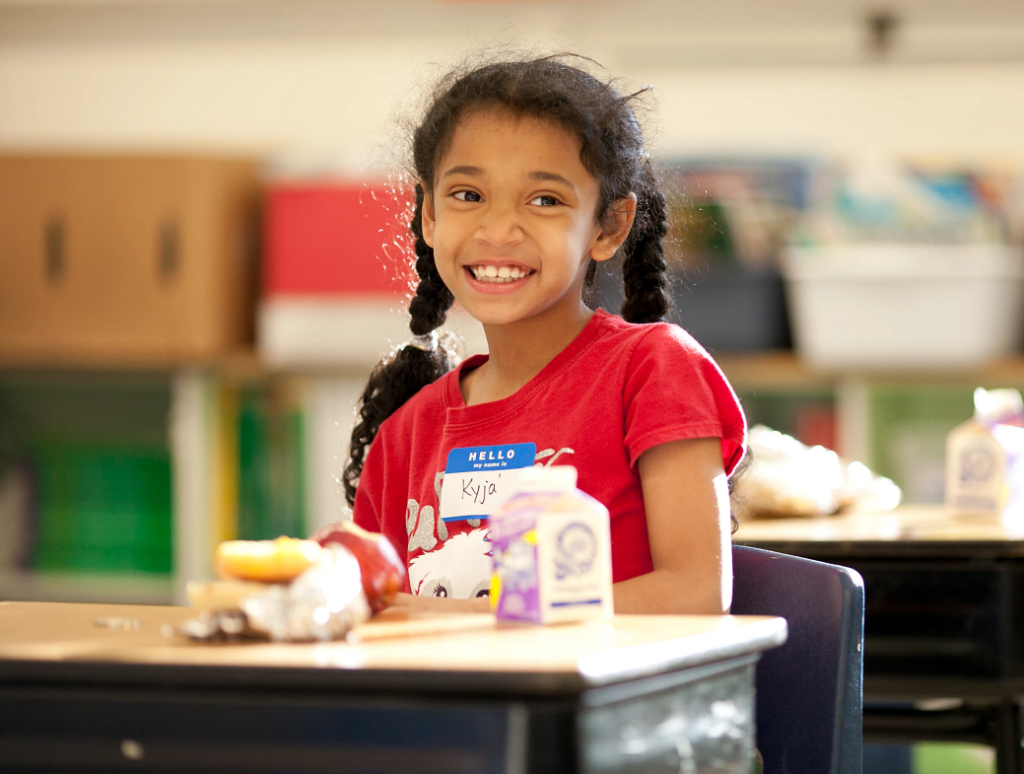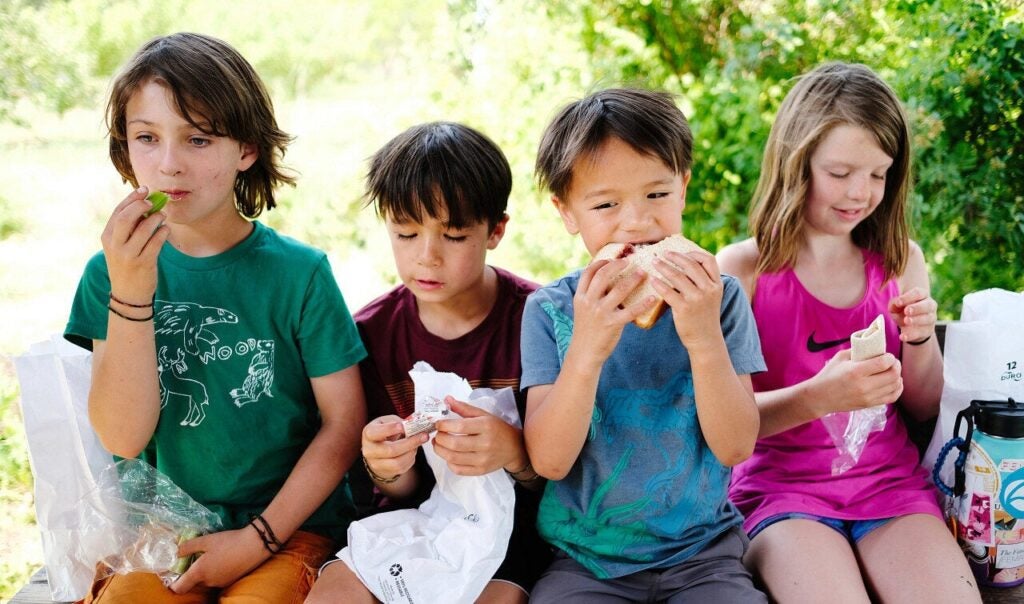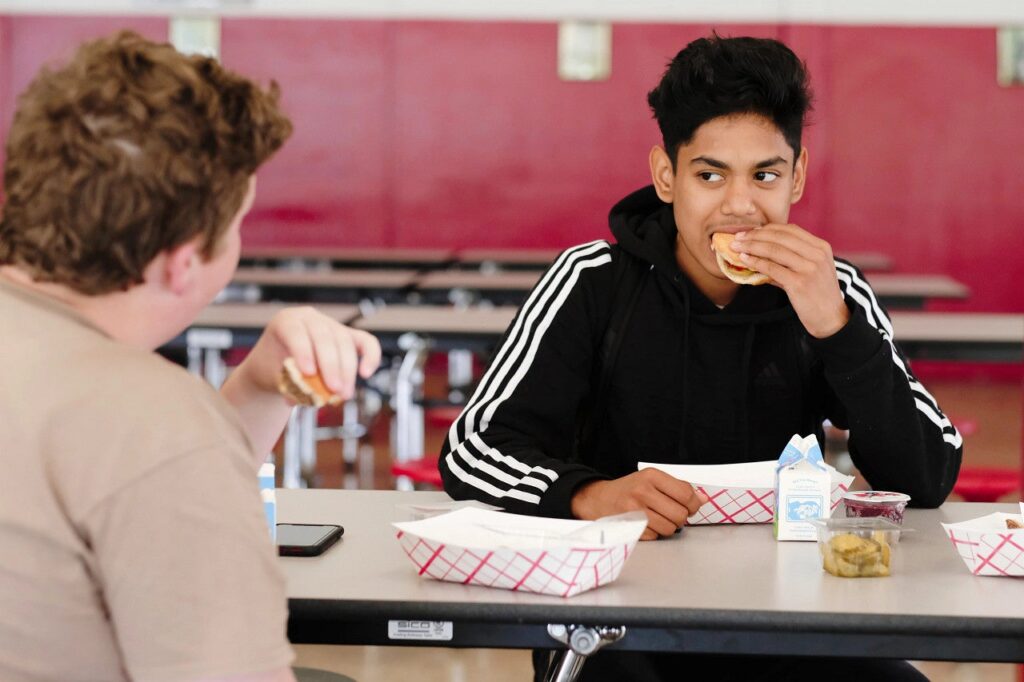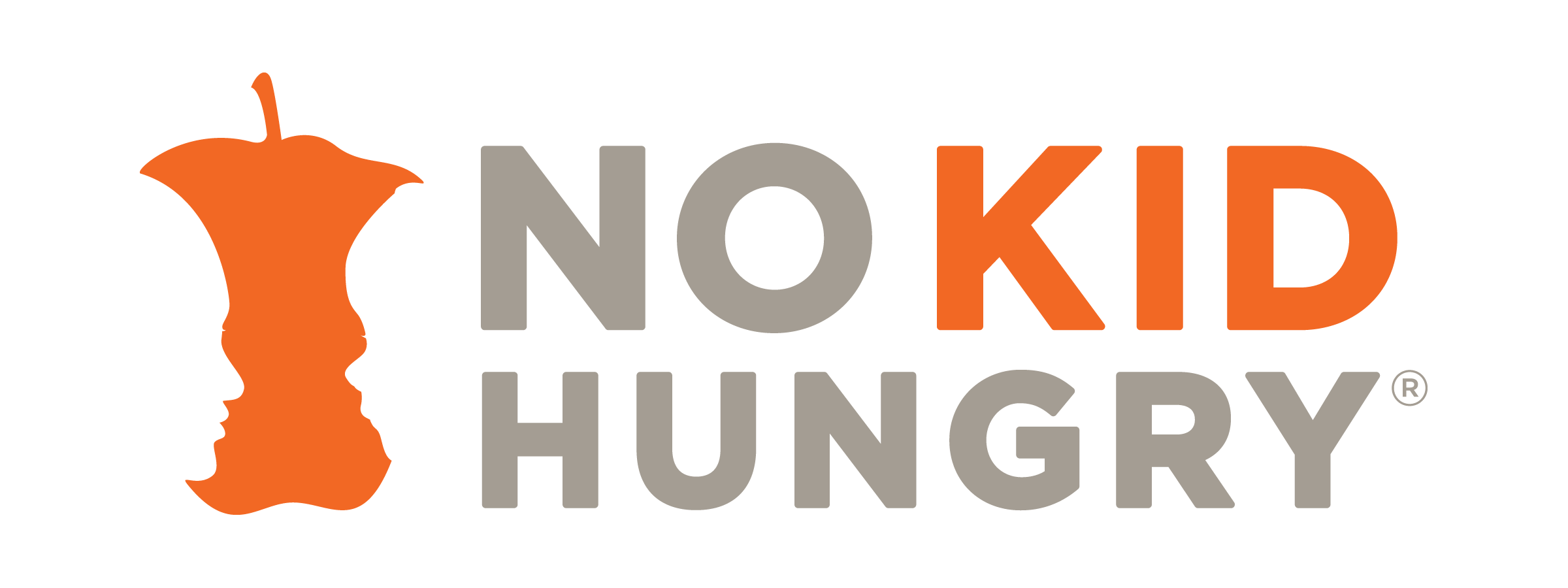School Meals
Schools are at the center of our communities and our kids’ lives. That’s why school meal programs are at the heart of No Kid Hungry’s work.
School Breakfast
Every day, students in Illinois start their school day on an empty stomach. It’s hard for them to focus and learn, which is why it’s critical for them to start their day off right with a healthy breakfast. The School Breakfast Program, created in 1975 is a federally-funded program operated by school districts across the country to facilitate making a balanced breakfast more accessible for all students.
Participation by traditional school breakfast can be hindered by many factors, including:
- Transportation: The school bus doesn’t arrive with enough time for students to get breakfast in the cafeteria and eat it before school starts.
- Stigma: Particularly in middle and high school students, there is often a stigma associated with eating breakfast in the cafeteria and students will avoid it to ensure they aren’t perceived negatively by their peers.
- Lack of resources: For low-income families, sometimes there may not be enough food at home for a healthy breakfast.
- Busy mornings: Regardless of income, many families are rushed in the morning and don’t have time to eat breakfast at home.
of students eligible for free or reduced price meals eat school breakfast.

Solving the Problem
We know that students who participate in school breakfast achieve higher test scores and attend school more regularly. That’s why we work to increase participation as a part of our strategy to end childhood hunger by incorporating Breakfast After the Bell. We provide schools with necessary technical expertise and grants, working with them on ways to increase the number of kids by incorporating breakfast as a part of the school day. Learn more about breakfast after the bell models like Breakfast in the Classroom, Grab and Go and Second Chance Breakfast.Summer Meals
During the school year, meals are available to kids through school breakfast and lunch. But during the summer, when schools are out, kids lose critical access to meals. To fill this gap, many local schools and community organizations across Illinois operate summer meal programs to provide food to kids at no cost. Summer meal programs are operated at a local level, overseen by the Illinois State Board of Education, and administered and funded by the USDA.
Summer meals are:
- Available for any kid or teen up to age 18
- Available at no cost
- Require no paperwork, signups, or eligibility confirmation required
- Fun! Many programs incorporate fun activities like art projects, sports, and science experiments in addition to serving meals

Barriers
Summer meals aren’t reaching all the kids who experience food insecurity. In fact, in Illinois only 11% of students who participate in school lunch during the academic year are also eating summer meals. Without reliable sources of healthy food throughout the summer, more kids who live in families experiencing financial hardship are at risk of returning to school further behind academically, which can have exponential ramifications year after year.
One of the main barriers to participation in Summer Meals is because kids and families simply don’t know they exist! To help combat this every year, No Kid Hungry runs a free texting service that helps connect families with meals in their neighborhoods.
Parents and caregivers simply text the word “FOOD” or “COMIDA” to 304-304 to see nearby meal locations.
Another reason for low summer meal participation in Illinois is limited transportation. In both rural and urban areas, if parents work during the day, there may be no way for children to get to the locations where meals and activities happen. That’s why we’ve made it one of our top priorities to support non-congregate meal service wherever possible.
Solving the Problem
No Kid Hungry Illinois has joined communities across the state who are offering summer meals to provide support, guidance, and funding to ensure kids have access to needed food when school is out.
Afterschool Meals
Afterschool meal and snack programs allow educational and enrichment programs to provide kids with the nutrition they need. We are committed to supporting existing programs, increasing participation and making meals available year-round.
There are two federal programs that support feeding kids after the school day ends, the Child and Adult Care Food Program At-Risk Afterschool program and through a snack component of the National School Lunch Program for school districts. Click here to learn more about the differences between these programs.
For many kids, afterschool meals may be the only source of nutrition a child receives before breakfast the next day. Both school districts and community organizations play a critical role in ensuring kids receive both enrichment and food after the school day ends.
Solving the Problem
We are committed to spreading awareness and supporting program sponsors operating afterschool meal programs to support kids with the nutrition they need to stay full and focused after the final bell rings.
If you are interested in learning more about starting or growing an afterschool program, please visit our Resources page!

SNAP
The Supplemental Nutrition Assistance Program (SNAP) is the largest federal nutrition program in the United States, feeding roughly 40 million people each year. It is also the largest child anti-hunger program, with nearly half of SNAP recipients being children and two-thirds of SNAP benefits going to households with children. SNAP provides monthly benefits to help support family’s food budgets to ensure they are receiving adequate nutrition.
Barriers
When kids are enrolled in SNAP, they get the food they need to succeed both at home and at school, but many eligible families may not know they qualify or how to sign up. Any household (defined as a family, an individual, or any combination) that purchases food and prepares meals together may qualify for assistance depending on combined income.
Citizens of the United States or non-citizens who are legally residing in the U.S. are eligible to apply for benefits. Non-citizen parents may be able to receive benefits for their children if they are citizens as well. To learn more about benefits and eligibility, we encourage you to visit the Illinois Department of Human Services website.
of families eligible for SNAP are enrolled in the program.
It’s important to note that public charge rules DO NOT apply to programs like SNAP, Pandemic EBT, WIC, and school meal programs. Participating in one or more of these programs will not affect an individual’s immigration status or chances of receiving legal permanent residency in the future.
Solving the Problem
Outreach and Advocacy
Raising awareness about SNAP and providing needed support during the application process is crucial in ensuring families and children have adequate resources needed to thrive.
By addressing common barriers to SNAP access through outreach and assistance, we’re ensuring more people who already qualify have the information they need to apply and receive benefits.
One way to do this is by supporting SNAP outreach through schools.

SNAP in Schools
School districts can play an important role in supporting access to SNAP as a trusted information source for students, parents and caregivers. An added benefit is that increasing SNAP access supports the whole school community and helps schools!
Increasing SNAP access for eligible families helps to:
- Directly certify more children for free meals while boosting school nutrition revenue
- Securing money for education programs and supports like libraries and internet access
- Improving student education outcomes
- Providing more resources for families and communities, like discounted internet services and identifying areas eligible for community-wide afterschool and summer meal programs.
- Become eligible for and increase revenue potential in the Community Eligibility Provision, which allows schools to offer free school meals for all students.
For more information on SNAP and how you can support, please visit our Resources page!

